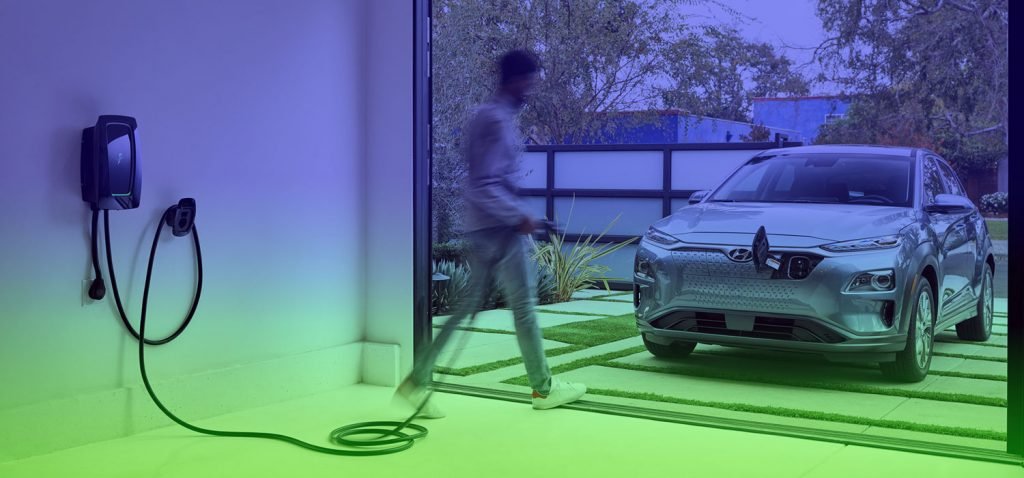Electric vehicles are quickly becoming a definite future reality especially if we care about our planet. If you are a first-time buyer of an electric vehicle, it would be wise to plan ahead on how to charge at home. If you are a rental property owner, you can attract EV owners who tend to be more affluent and educated as tenants, creating more demand for the ideal tenant, and raising the overall value of your property with installed EV charging capabilities.
This article is a practical guide for selecting the best EV charger installation for your home use.
Home charging has lots of benefits. Apart from being convenient as it is always available to you, you can save on your electricity bills by taking advantage of off-peak periods to load up your EV with electrons.
It is important, however, to plan ahead to ensure that your EV charger installation is done the right way.
What do I need to consider when installing my home EV charger?
There are a few important things to pay attention to as they influence the type of charging equipment you acquire, and if there are any necessary modifications needed to accommodate your EV.
Below are some important points to consider before choosing an EV home charger that best suits your needs and available space:
Charging speed
EV chargers come with different charging speeds. If you are a home owner that needs EV charging installation for home use, DC chargers are out of the question due to their power requirements. You can choose between Level 1 and Level 2 chargers.
Level 1 chargers are very easy to use at home as they require no modification to your existing home wiring. These chargers usually come included with your EV purchase and they can connect directly to a 120-volt outlet with a 3-pin plug, just like you plug in your laptop charger.
The downside of Level 1 chargers however is that they charge very slowly, adding between 3 and 5 miles per hour to your vehicle. If you are a commuter and ever travel long distances, you will need a faster charger.
Level 2 chargers supply more power, meaning your EV will charge faster. You can add up to 60 miles an hour, depending on the amount of electricity your car’s onboard charger can accept. There is no fear of damaging your car by plugging in a fast charger as the car controls the amount of power it takes in.
Most EV owners go for Level 2 chargers because of the speed, time saving, and convenience.
Installation Requirements
Depending on your circumstances, there may be special considerations that will determine which charging equipment you need. For instance, you may have to set up your installation out in the open, which means you need weather-proofing equipment.
You
Some EV drivers may have to install their chargers outdoors where they will be exposed to the elements due to space constraints. It is important to select a charger that can withstand the sun as well as the rain. Make sure it has IP66 protection rating and includes fireproof and weatherproof casing.
Smart chargers should be installed by a certified electrician for proper installation and efficiency of use. For example, chargers that deliver 40-amps may be plugged but when more is needed, they have to be hardwired and permanently mounted.
Smart Features
Some smart chargers are able to connect to a smartphone app through WIFI. The app allows you to manage your charging experience. You can set your charging schedule so that you can take advantage of some electricity tariffs that offer free electricity during the evening or on weekends. You can even program a reminder to charge and track charging costs as well as mileage.
Cost
This is probably the most important factor. There are differently priced models with different feature sets. The general rule though is that you get what you pay for. Cheaper chargers often sacrifice overall safety, which puts you, your vehicle and home at risk. By getting a high-quality certified charger installed by a professional, you will be assured of safety, chargers will last longer and ultimately gain more features. Most EV chargers also usually come with a warranty for customer peace of mind.
Other features and considerations
Some chargers come with only 16-foot cable but lengths of 20 to 25 feet are more of a practical use.
There are portable Mode 2 chargers that you can take everywhere with you but they tend to be low powered and charge slowly. They typically charge at 12 to 18 miles per hour but they may work well when you will spend a considerable amount of time at your destination, e.g., workplace. Now that you know more about smart chargers, you can be better prepared to make your first EV purchase, if you haven’t already begun to enjoy the many benefits of EVs. In preparation for this, you can contact us at Click Electric to handle all your electrical requirements for a safe and professional installation of your EV smart charger. Give us a call for a FREE estimate today at (877) 858-5853.

